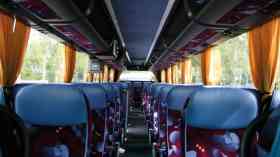The foundation for improving sport facilities
 The Football Foundation is the UK’s largest charity for sports. Funded by the Premier League, the FA and government (via Sport England), the Foundation directs £30million every year into grassroots sport.
The Football Foundation is the UK’s largest charity for sports. Funded by the Premier League, the FA and government (via Sport England), the Foundation directs £30million every year into grassroots sport.
Schools may be eligible for Foundation funding from the charity if each can demonstrate a need for such facilities in their area, value-for-money, and that improving the facilities will help increase participation and increase access to football and sports provision amongst the local community.
Three schools that recently benefited from Foundation funding are Cramlington Learning Village, St Mark’s Church of England Primary School and King Charles I School.
Cramlington Learning Village
Cramlington Learning Village, a secondary school in the north-east, worked with the Northumberland FA to secure a £184,584 grant from the Football Foundation towards a new third-generation artificial grass pitch for Cramlington Sporting Club, a dual-use sports facility for both the school and community.
Opened in 2002, Cramlington Sporting Club is located within the grounds of what was previously Cramlington Community High School. Cramlington Learning Village has exclusive use of the Sporting Club during school term-time hours, and the wider community can take full advantage of its superb facilities outside school hours.
Cramlington Sporting Club’s facilities now include a stunning new artificial grass pitch, which is full-size and can host three mini-soccer matches at a time.
The pitch was officially opened this April by former Newcastle United striker and England legend Peter Beardsley. At the event Beardsley, who made 59 appearances for England and is a supporter of the Football Foundation, said: “This surface will make a real difference to grassroots players who are developing their skills and it’s great to see Football Foundation funding recognising partnerships such as this one.”
Cramlington Learning Village is one of the 82 projects across the Northumberland FA that the Football Foundation has awarded a grant. In total, the Foundation has awarded grants worth £10.4million towards grassroots sports projects, worth a total of nearly £22million across Northumberland FA.
Paul Steanson, director of sport at Cramlington Learning Village, said: “We are delighted to see this facility open in Cramlington. It will greatly enhance teaching and learning, create opportunities for our pupils and will support the terrific work of football clubs in our community.
“Young players need to train and play on this quality of surface especially in the winter months and we are extremely grateful to the Football Foundation for making this possible in Cramlington and for the support we have received from the Northumberland FA.”
St Mark's CE Primary School
The new pitch at St Mark’s Church of England Primary School in London is a community link with Arsenal Football Club.
Former Arsenal Football Club defender and assistant manager Pat Rice officially opened the Islington school’s new third-generation pitch, recently.
The new pitch, which is part-funded by the Football Foundation, will offer a much-needed sporting facility in an area that is short on open recreational spaces. The £308,000 project was also funded by the Mayor of London’s Facility Fund, Sport England, Islington Council, St Mark’s CE Primary School and Cambridge Education Islington. Headteacher of St Mark’s Primary School Calvin Henry said: “The new facility, funded by the Football Foundation and the Mayor of London’s Facility Fund has transformed the sporting facilities available at the school and is going to make such a difference to the life of the school and the local community.”
The school is located close to Arsenal Football Club’s Emirates Stadium, and it has forged a link with the Premier League club who will provide weekly coaching sessions during school time, as well as after-school sessions.
Arsenal FC’s community projects, such as “Double Club”, an education and football programme offering a range of subjects together with football coaching, will also use the site.
A much-improved range of sporting activities will be offered to pupils and those of other local schools during term-time and the local community will also be able to get involved in football and other sports at the facility at all other times.
The London Football Association worked with St Mark’s school to help it secure a £47,000 grant from the Foundation. The school also received a £30,000 grant from the Mayor of London’s Facility Fund towards the project.
The Mayor of London’s Facility Fund is part of mayor Boris Johnson’s commitment to deliver a sporting legacy from the 2012 Olympic and Paralympic Games. The aim of the Fund, which is managed on the mayor’s behalf by the Foundation, is to increase participation levels in sport in London through the funding of affordable, good-quality facilities within local communities in every London borough.
“The children have waited patiently for it to be built and are now so excited to be able to use it,” Calvin Henry added.
King Charles I School
Birmingham City Ladies FC defender, Chelsea Weston, officially opened a refurbished third‑generation artificial grass pitch at King Charles I School, a secondary school and sixth form college in Kidderminster. The school worked in partnership with the Worcestershire FA to secure a £205,000 grant from the Football Foundation. This enabled them to replace their 25-year-old, sand‑based pitch with a state‑of‑the-art third-generation artificial surface.
“We are grateful for the funding, support and guidance we have received from the Football Foundation,” said headteacher Tim Gulliver.
“The grant has enabled us to replace the 25-year-old sand-based pitch that was no longer fit for purpose with this stunning new state‑of‑the-art pitch. It will benefit not only the students at King Charles I Secondary School, but the Kidderminster community as a whole.
“Without the input from the Football Foundation we could not have realised this fantastic opportunity,” Gulliver added.
Chelsea Weston, Birmingham City Ladies FC Young Player of the Season 2012, cut the ribbon to the top-quality playing surface, which will be used for training and playing on, and available for students at King Charles I Secondary School, local football clubs and the community.
The new pitch will also become a central hub for the town’s Charter Standard Clubs to access for training and match play. The Worcestershire FA will also use the site for its volunteer development programme.
Benefitting the community
The Foundation receives money from the top of the professional game as well as from the Department for Culture, Media & Sport through Sport England.
This money is used to leverage partnership funding and deliver a programme of new and improved community sports facilities in towns and cities across the country that schools, football clubs and communities can benefit from.
Schools can apply for grants towards improving their sports facilities through the Foundation’s two-core funding streams: the Facilities Scheme and Build the Game Scheme.
The Facilities Scheme offers grants between £100,000 to £500,000 towards projects such as new clubhouses and changing rooms, and real grass or artificial grass pitches.
The Build the Game Scheme focuses on smaller-scale projects, such as the installation of new showers or refurbishing a multi‑use games area, and provides grants of up to £100,000.
Further information
www.footballfoundation.org.uk
Latest News
30/10/2025 - 01:28
In the wake of the Raac crisis, the DfE spent £5 million on research into the condition of school buildings, which is due to conclude in spring 2026.
30/10/2025 - 01:09
Malmesbury Primary School in Wiltshire has submitted plans for a major expansion, funded by entrepreneur James Dyson.
30/10/2025 - 00:55
Monday's Every Pair Tells a Story campaign to protest to highlight the national crisis in SEND provision.
29/10/2025 - 09:19
Estimated data from the Department for Education reveals that 470,000 pupils under 16s use local authority funded transport to get to school.
28/10/2025 - 09:29
Timeline set for removal of Reinforced Autoclaved Aerated Concrete







